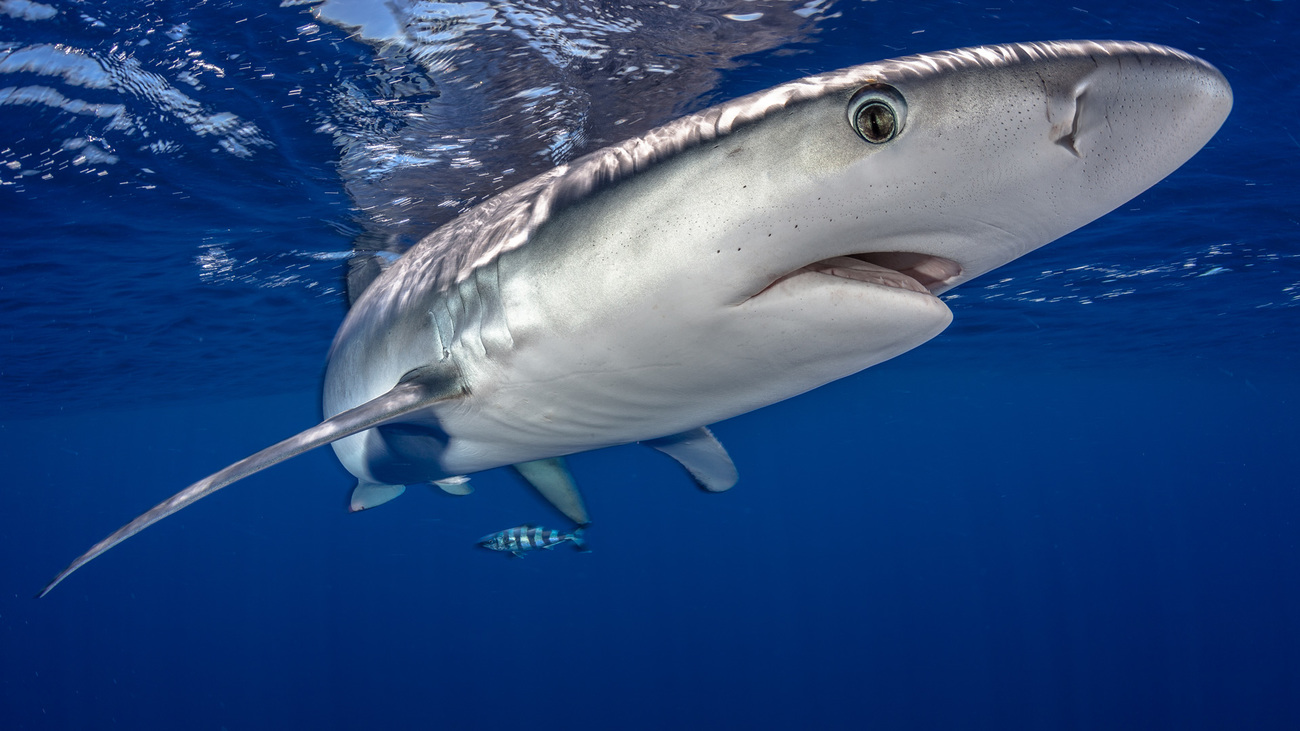Press releases
40 years after the whaling ban – whales continue to die
Read moreThe EU and shark trade: how new safeguards can protect the species

(Brussels, Belgium – 18 September 2023) — IFAW today launches a new report, identifying the scale and economic value of the trade in shark products by the EU and spotlighting a potential lack of enforcement and underreporting of illegal trade by Member States.
Sharks are vital for ocean health and local livelihoods, yet global demand for shark products and a lack of catch and trade management is driving shark populations to extinction. The European Union (EU) plays a significant role, importing over 160,000 metric tonnes of shark products and exporting over 169,000 metric tonnes, with the total import value at over EUR 374 million and total export at over EUR 518 million in value.
Covering import to and export from EU Member States to all countries worldwide, Shark safeguards: Elevating EU controls on shark trade highlights the urgent need for greater controls on the trade in shark products. The report examines both the legal trade data reported by the 27 Member States and the illegal trade data as registered in the EU Trade in Wildlife Information eXchange database (EU-TWIX).
“Not only is the scale of the trade staggering, but shockingly, the EU also seems to provide a platform for transit of illegal shark products,” said Barbara Slee, Senior Program Manager of International Policy at IFAW. “Four out of eight significant seizures within the research period were transit shipments intercepted by an EU Member State which was neither the country of origin nor the destination.
“The research suggests an alarmingly low level of enforcement given the scale of the EU trade in shark products, with a mere 30 seizures registered in four years. It is particularly concerning that only three reported seizures took place at a maritime port when we know most shark products are traded via maritime routes.”
“What stands out from the legal trade data is that two EU Member States are by far the main players: Spain and Portugal are number one and two as both supplier and receiver of the highest quantities of fins and meat,” said Slee.
Implementation and enforcement are now urgently needed to prevent the global demand from driving shark species to a point of no return. The report recommends increasing enforcement capacity (especially at maritime ports), improving the quality of trade monitoring, and the urgent need to increase capacity for the implementation of additional controls on shark trade under Convention on International Trade in Endangered Species (CITES) that enter into force in November.
At the (CITES) 19th Conference of the Parties (CoP19) in November 2022, the EU and other CITES parties supported the inclusion of 97 additional shark and ray species on Appendix II and, together with already listed species, approximately 90% of global fin trade will come under CITES control when the remaining CoP19 listed species come into effect on 25 November 2023.
The decision to protect further shark species came after IFAW published its 2022 its report Supply and Demand: The EU’s role in the global shark trade, which analysed official raw customs data from key Asian markets to identify the EU as one of the top sources of shark fin products to these markets..
Data from IFAW’s new report released today can be used as a baseline to evaluate the significant levels of catch and trade of CITES-listed shark species by EU Member States and beyond, to ensure CITES sustainability requirements are met and sharks are protected into the future.
// ENDS
Notes:
Media contacts
Stacey Hedman
Communications Director, Policy
+1 508 737 2558
shedman@ifaw.org
Every problem has a solution, every solution needs support.
The problems we face are urgent, complicated, and resistant to change. Real solutions demand creativity, hard work and involvement from people like you.
Unfortunately, the browser you use is outdated and does not allow you to display the site correctly. Please install any of the modern browsers, for example:
Google Chrome Firefox Safari